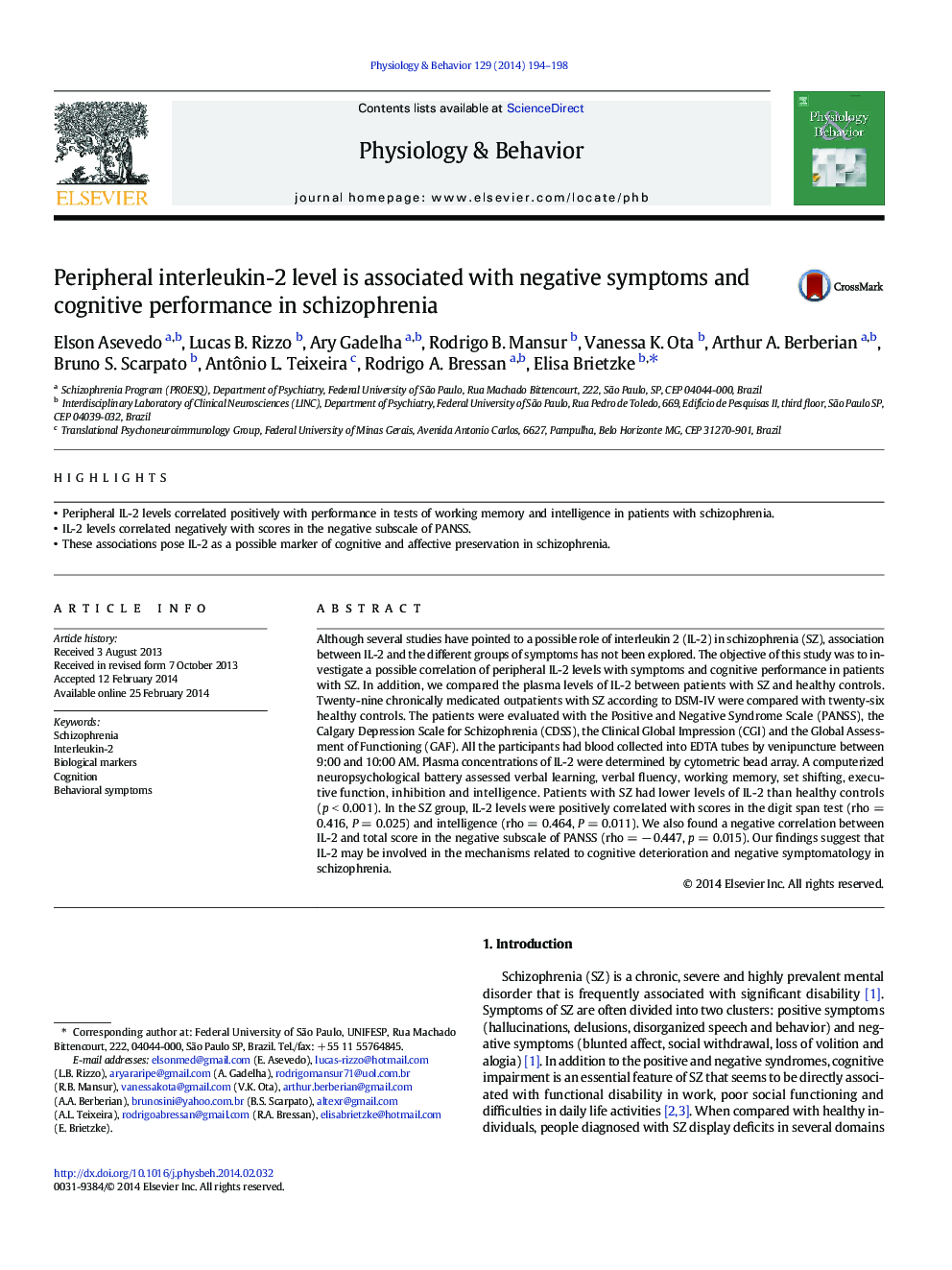| Article ID | Journal | Published Year | Pages | File Type |
|---|---|---|---|---|
| 5924297 | Physiology & Behavior | 2014 | 5 Pages |
Abstract
Although several studies have pointed to a possible role of interleukin 2 (IL-2) in schizophrenia (SZ), association between IL-2 and the different groups of symptoms has not been explored. The objective of this study was to investigate a possible correlation of peripheral IL-2 levels with symptoms and cognitive performance in patients with SZ. In addition, we compared the plasma levels of IL-2 between patients with SZ and healthy controls. Twenty-nine chronically medicated outpatients with SZ according to DSM-IV were compared with twenty-six healthy controls. The patients were evaluated with the Positive and Negative Syndrome Scale (PANSS), the Calgary Depression Scale for Schizophrenia (CDSS), the Clinical Global Impression (CGI) and the Global Assessment of Functioning (GAF). All the participants had blood collected into EDTA tubes by venipuncture between 9:00 and 10:00 AM. Plasma concentrations of IL-2 were determined by cytometric bead array. A computerized neuropsychological battery assessed verbal learning, verbal fluency, working memory, set shifting, executive function, inhibition and intelligence. Patients with SZ had lower levels of IL-2 than healthy controls (p < 0.001). In the SZ group, IL-2 levels were positively correlated with scores in the digit span test (rho = 0.416, P = 0.025) and intelligence (rho = 0.464, P = 0.011). We also found a negative correlation between IL-2 and total score in the negative subscale of PANSS (rho = â 0.447, p = 0.015). Our findings suggest that IL-2 may be involved in the mechanisms related to cognitive deterioration and negative symptomatology in schizophrenia.
Related Topics
Life Sciences
Biochemistry, Genetics and Molecular Biology
Physiology
Authors
Elson Asevedo, Lucas B. Rizzo, Ary Gadelha, Rodrigo B. Mansur, Vanessa K. Ota, Arthur A. Berberian, Bruno S. Scarpato, Antônio L. Teixeira, Rodrigo A. Bressan, Elisa Brietzke,
